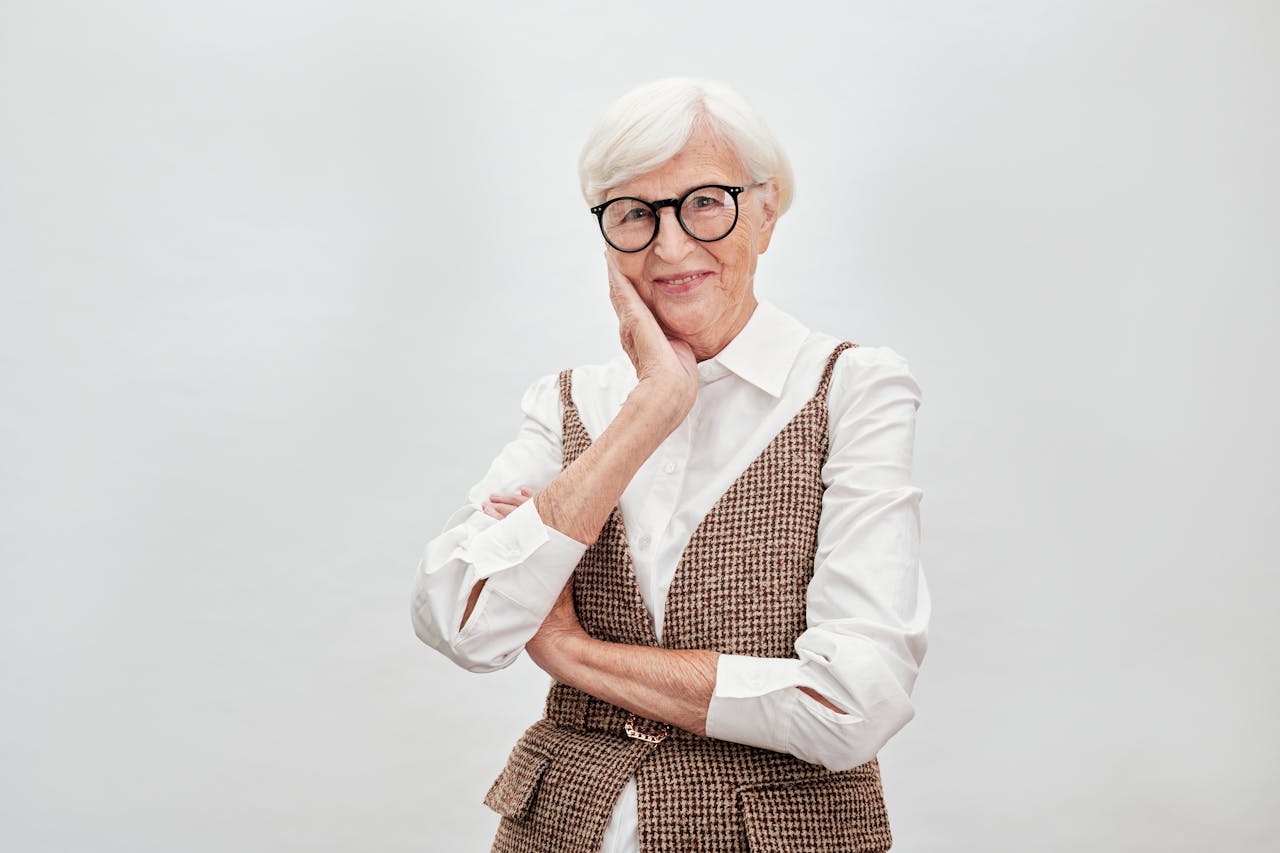
(Photo by Sabina Kallari)
Has this ever occurred to you when the smartphone rings and you’d rather let it go to voicemail, or when someone knocks at your door and instead of answering, you freeze, hoping they'll just go away? You're not alone, and no, you're not turning into some kind of grumpy recluse. You're just aging, and with aging comes something most folks never talk about: this subtle, creeping desire to be left alone more often. And here's the thing, no one tells you this state is completely normal. Actually, it’s for your own good.
When you were younger, social interaction was out and about — at work, at school, through your kids, on the bus, at the grocery store. People were always around, you got used to it, and perhaps, even relied on it. But as the years passed by, something changed. It's not that you dislike people; you just don't need them as they used to be. It's not selfish, antisocial, or weird — it's psychology, deeply studied, and completely logical. Here are the reasons behind what you feel:
1. Your tolerance for nonsense is next to zero.
When you're young, you tolerate a lot: poor friendships, gossip, pointless small talk, family drama, or verbal diarrhea (someone talking about himself for hours and not asking you a single question). In time, your patience for that disappears. After years, of dealing with nonsense comes the time, your self-preservation just goes, "No more crap!“ You no longer pretend to laugh at stupid jokes and walk away from people who exhaust you. It's not cruelty or being rude. You identify this as an emotional noise and finally permit yourself to mute it.

(Photo by Mikhail Nilov)
2. Your priorities shift.
You start asking yourself different types of questions:
- How much energy do I have today?
- Who actually makes me feel good when I talk to them?
- Who drains me?
- Who do I trust?
The popularity, approval, or a full calendar are no longer on your agenda. The peace is. You need and you want:
- meaningful conversations, not surface-level chitchat;
- people who get you, not people who tolerate you. And if the right people aren't available, you'd rather sit in silence than force a smile on your face. You are not lonely, you’re free and wise now.
3. Grief.
As time goes by, your inner circle gets smaller — friends move, loved ones join eternity, and relationships fade. Each one takes a little chunk out of your social world, and for many, that world shrinks without them even acknowledging it. Additionally, some people are reluctant to rebuild it. That’s not depression or giving up but, rather, a deep awareness your time is limited, and, thus, you focus on quality over quantity. Hear your soul say, "I've loved hard, I've lost hard, and now I only have space for truly safe feelings."
4. Social fatigue.
Since you've spent a lifetime managing personalities, navigating group dynamics, accommodating, mediating, and entertaining, over time, all that becomes quite exhausting. You don't recover as quickly, so a one-hour lunch with someone talkative can wipe you out for the whole afternoon. A family gathering with many competing conversations all at once feels like running a mental triathlon. So, finally, you stop saying yes to everything and choose rest over obligation. This way, you protect your peace because it’s the most sacred to you.
Little does society acknowledge it, but age doesn’t always bring loneliness. In fact, the elderly are deeply content being let alone. And since the general public ignores this narrative, we keep hearing that:
- the connection is the ultimate goal;
- the more people you have around you, the happier you are.
But here's the catch: connections don't necessarily mean company. At times, the connection is:
- knowing who you are without distraction;
- enjoying your own thoughts;
- listening to the birds;
- reading a book;
- staring at the sunrise with a cup of tea, without the need to explain yourself.
That's not avoidance; that's evolution.

(Photo by Arina Krasnikova)
5. Self-awareness.
You finally really know yourself:
- what pushes your buttons;
- what lifts your spirit;
- what your limits are.
This brings your protective instinct out. You stop putting yourself in situations against your nature.
- If small talk drains you — avoid it.
- If certain people stir up old wounds — create distance to preserve your peace, without punishing them.
It's a quiet kind of strength, which you’ve earned through experience.
6. Time becomes more precious.
Time starts to feel different. In your 20’s, an hour was nothing. In 50’s, 60’s, or 70’s, an hour feels like gold, and you’re more mindful of:
- how you spend it;
- who you give it to;
- whether it leaves you feeling better or worse.
Every coffee date, every phone call, or every visit comes at a cost, measured in time and in energy. That’s why you invest it more wisely, by choosing solitude over company, not because you dislike people, but because you love yourself enough to put up your limits.
It’s possible, the people around you could fail to understand all that, saying:
- you're withdrawing;
- you’re not as fun as you used to be;
- you’ve changed.
And… they're right: you have, and that's the whole point. You haven’t come on the earth to be the life of the party; you have:
- to live your life on your terms;
- to feel what you feel, to say no without guilt;
- to say yes only when it matters.
You didn't walk this long way just to keep everyone else happy or entertained. This is the real you — without being rude — and you need your peace of mind, which gets more sacred with time.

(Photo by Moe Magners)
On top of protecting your time or avoiding stress, your shift in your social behavior is a seek for clarity, a mental sharpness in the sense of awareness, not memory. Thus, you start recognizing things faster:
- the fake smiles;
- the flattery;
- the one-sided friendships.
You don't need months to figure out someone's not right for you — one brisk conversation can tell you everything. And if you're trying to keep up with the social game, it could be exhausting. Instead, you’d rather step back, simplify, and let go of the need to explain yourself. You’re no longer justifying why you left the party early or didn't return that call. You no longer owe people your presence just because you used to. From strangers, that kind of self-honesty could feel like isolation, but for you, it’s a relief.
Emotions
You might have been the peacemaker in your family, the go-to friend, the one who always reached out first, kept the connections alive and made the plans. But after decades of being the glue, you begin asking yourself: "Who's holding me together?" And if the answer is "no one", you stop betraying your own needs by gradually stepping out of that role, without punishing others. You trade people-pleasing for peace of mind, and as a result of which, some people might fall away when you stop carrying them. And those who stay onboard your ship are the real treasure.
Body
Physical aging affects your social behavior, too. You may tire more easily; loud environments might be overwhelming. Unless you’re a gym rat, your joints ache, your back needs support, and before you know it, a two-hour dinner with five oldies doesn't sound like fun anymore, because it’s like endurance training. That physical strain mixed with mental fatigue makes quiet time feel like a gift. So you adjust, you decline more invites, you prefer early afternoons over late nights, and you design a life that fits your body, not the other way around.
Identity
As you age, your identity changes. You're no longer the parent with small kids, nor climbing the career ladder. You might've retired or maybe you've shifted your lifestyle completely, which brings a social shift. The people you once bonded with (fellow parents, co-workers, younger relatives) may not feel as connected to you anymore, since your lives no longer mirror each other. You vibrate differently, and that's fantastic, so you can’t stay connected forever to everyone. Letting go is so rejuvenating and can be one of the healthiest things to. That’s how you make space for stuff your soul actually craves:
- your quiet sunny mornings;
- your FaceTime call with the person who really gets you;
- your long walk without having to perform for anyone.
More meaning — less stimulation. More depth — less noise. It's about refining your circle, not completely rejecting people.

(Photo by Cottonbro Studio)
Behavior
At first, the refinement can feel lonely, but eventually, it brings you clarity. Some people would fail to figure this out, whining: "You used to be so social," or "Why don't you come out anymore?" Don’t struggle to explain your thousand quiet realizations. There’s no way to summarize decades of growth in a polite sentence. So you owe no explanation. Not anymore. You've earned the right to disappear into your peace without guilt.
Take your shift in behavior — your quieting of your social life — like an actual extension of your life. Studies have shown that reducing stress and protecting your emotional health are key factors in longevity. Avoiding toxic conversations, limiting overwhelming environments, and choosing serenity over obligation are healing, not withdrawing. That’s how you preserve vital energy for what matters, and your mind and body know it. You seem calmer since you’ve:
- stopped trying to impress others;
- stopped trying to fix what can't be fixed.
You may walk slower, but your mind is clearer. You may talk less, but when you speak, it matters. You’re not running from people — you’re running toward yourself, toward the version of yourself you were too busy to meet before.
Aging teaches you to observe more and react less. As you no longer need to prove anything, no longer chase the approval of people who never understood you, you start choosing peace over pride, solitude over forced connection, truth over tradition. And it feels good.
And here's the quiet beautiful truth about aging: as the constant need for people around you evaporates, the right ones start showing up. You start attracting connection naturally without begging for them. The profound conversations just happen, not being forced. The fulfilling companionship finds you, not having to schedule even one. The few people who remain in your bubble become priceless as they love the new quiet version of you, the real version—not the one who showed up to every event, but the one who shows up fully when it matters.
Don't panic
If you're finding yourself more withdrawn lately, more selective, more quiet, don't panic. Don't second-guess it. Don't let the world tell you something's wrong with you. You're not broken; you're blooming. You're peeling away everything that doesn't serve you. You're not becoming less social; you're becoming more you. And that's a kind of joy that can't be faked. Maybe you have no plans this weekend, or your phone hasn't rung in a few days. Maybe you spent your afternoon doing absolutely nothing with a peaceful heart. That's not loneliness; that's arrival. That's what it feels like when your life starts fitting just right.
And if this post felt like it understood you better than most people do lately, then don't let it be the last time we talk. I’m here to help people like you: no noise, no pressure, just real talk, soul-deep stories, and the peace you've earned.
